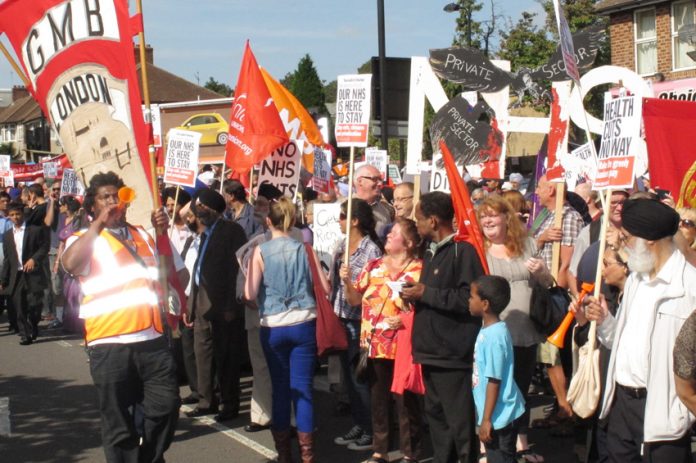
THE British Medical Association yesterday expressed concern for the future of the NHS, after Health Secretary Hunt signalled more savage cuts.
A BMA spokesperson said: ‘It is extremely worrying to hear that the Health Secretary, Jeremy Hunt, cannot guarantee real-term budget increases for the NHS after 2015.
‘The NHS is likely to face considerable financial pressure for some time still to come.
‘Advances in expensive medical technologies, rising costs of drugs and an ageing population are huge challenges for the health service, and sufficient resources are needed to meet these.
‘Current financial pressures are already having an adverse impact on many patient services, including increased waiting times and reduced availability of some treatments, so it is very worrying to envisage fewer resources for the NHS.’
Hunt has said he will not make any commitments to future increases in health spending.
In his first interview after taking the job of health secretary, Hunt told The Spectator magazine that he cannot repeat predecessor Lansley’s promise that spending on health services will increase for the foreseeable future.
He told the magazine: ‘I don’t think it’s possible to make a prediction (on the NHS budget) because there is so much uncertainty in the economic outlook and no one knows what is going to happen with the eurozone.’
When pressed by his interviewer on the subject, he added that Prime Minister Cameron is ‘passionately committed’ to the NHS, but that ‘we would also need to have a look at the economic situation – it’s something that is very difficult to predict’.
Hunt also said he was committed to a target of creating £20 billion in efficiency savings within the health service by 2015.
• Vital ward rounds are being neglected in hospitals, to the detriment of patients, a joint report by the Royal College of Nursing and the Royal College of Physicians warns.
The Royal Colleges said rounds needed to be re-prioritised and become a ‘cornerstone’ of daily life in hospitals again.
Indicating the effect of the NHS cuts, the guidance said too often doctors were left to do them themselves without the input of other staff, particularly nurses.
The Royal Colleges said the problem had arisen because staff were being stretched too thinly, and poor organisation meant they were not always carried out at the most appropriate times.
The colleges called for a ‘concerted culture change’ with clinical staff, managers and hospital executives engaging with, and focusing on, improving the quality of ward rounds.
• Unison yesterday warned that the decision by North Tees and Hartlepool NHS Foundation Trust to cut sickness absence pay is a threat to patient safety.
A union statement said: ‘The planned cut will affect nearly 5,500 members of staff who work unsocial hours, achieved by dismissing them and re-engaging them on contracts with worse terms and conditions.
‘Nurses, midwives, health care assistants, and support staff including porters and catering staff are all affected.
‘The change will place enormous financial pressures on members of staff who are attacked or injured at work, have disabilities or long-term health conditions or even infectious diseases.
‘However, those managerial and directorial staff who work standard Monday to Friday, nine-to-five jobs will be unaffected by the change.
‘The Trust is currently constructing a new hospital and it is clear the staff are having to pay the price.’